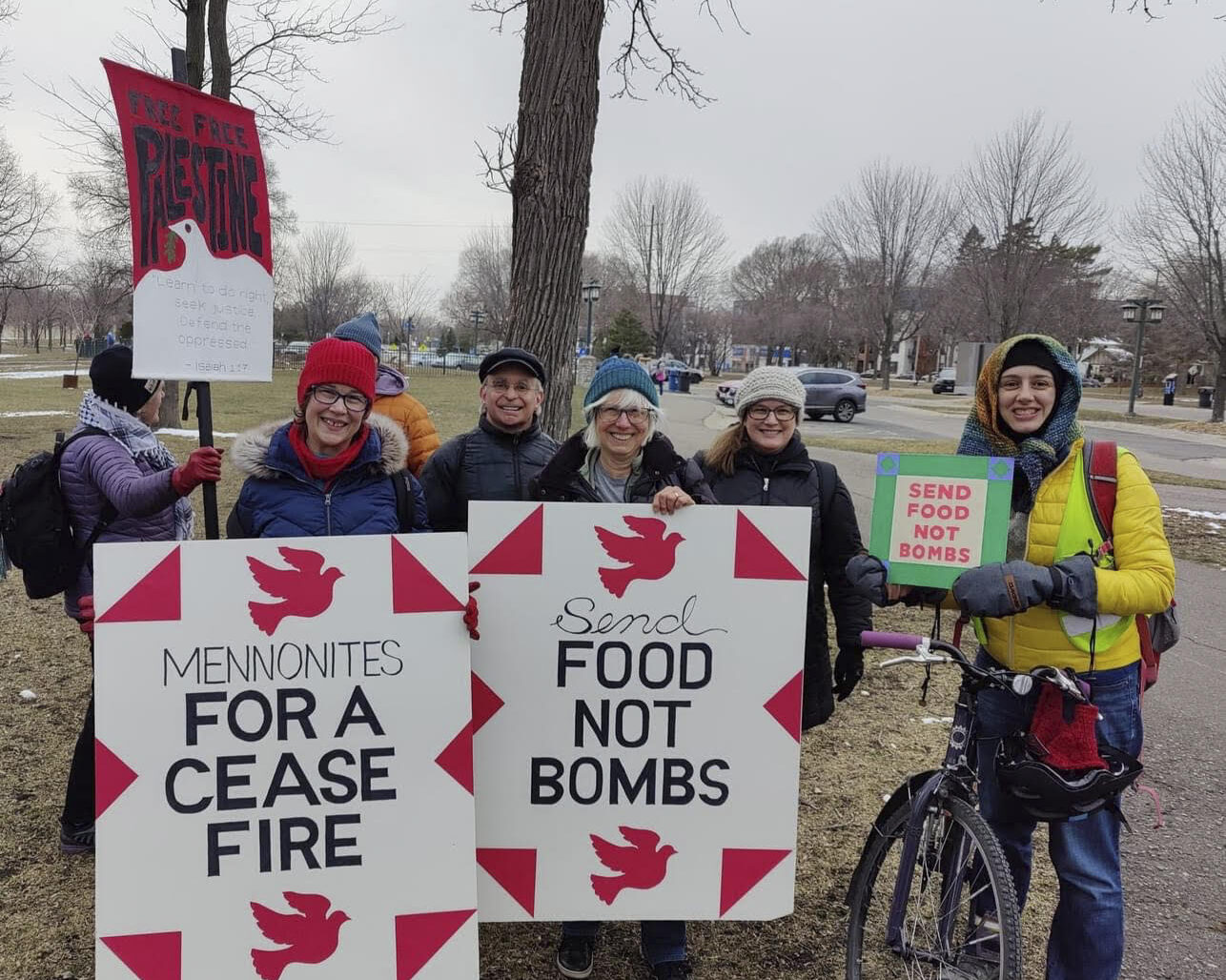I accuse Dustin Schwarze and Mark Ringgenberg of Murder in the Third Degree for the killing of Jamar Clark.
According to Minnesota Statutes 609.195, Murder in the Third Degree happens when “Whoever, without intent to effect the death of any person, causes the death of another by perpetrating an act eminently dangerous to others and evincing a depraved mind, without regard for human life, is guilty of murder in the third degree and may be sentenced to imprisonment for not more than 25 years.”
Jamar Clark was killed because of bad judgment, reckless behavior and failure to follow proper police procedure on the part of Officers Dustin Schwarze and Mark Ringgenberg.
The first mistake the officers made on the evening of Nov. 15 was in not activating the emergency lights and siren going to the scene even though the call was Code 3, which means urgent. They knew that turning on the lights and siren would identify them as police officers in an emergency situation but, most significantly, they knew that turning on the lights would activate the videotape in the patrol car that would record the encounter. They deliberately silenced an important and objective witness to the homicide by this action.
They arrived at the scene and talked to a paramedic. According to the statement by Officer Schwarze, “He said he called us because ah this male and he pointed to a, gentleman that was standing nearby. Not on the street he was up on the boulevard, the boulevard area within close proximity to both the ambulance and us … Ah he said that this male, pointing to this gentleman standing there ah was hindering the process of these paramedics rendering aid to whoever was in the ambulance. He said that he didn’t have a lotta information and that he needed our help figuring everything out.” [Spelling and punctuation are from the original.]
Notice the irregular comma in the transcript when Schwarze is first describing Jamar Clark—“and he pointed to a, gentleman”—as if the stenographer is trying to capture the ambiguity and irony in Schwarze’s use of the term “gentleman” to describe Clark.
Gentleman is a rarely used term any more. It’s most current usage is as an ironic and derogatory term in the Deep South, as in “Colored Gentleman,” or on neo-Nazi websites: “The Jew Bernie Sanders was confronted by a colored gentleman on the global Jew conspiracy,” The Daily Stormer, April 12, 2016, and “Colored Gentleman Who Stole Hamburgers Still on the Loose,” Daily Stormer, April 12, 2016.
At this point, Officers Schwarze and Ringgenberg have a paramedic telling them he thinks there might have been a domestic incident, Jamar Clark might have tried to “hinder” the efforts of the paramedics (according to witnesses he “tapped on the door” of the ambulance), and the paramedics “needed our help figuring everything out.” At this point Clark is walking away from the ambulance and is clearly not threatening anyone.
And what was Schwarze’s first impression of this “gentleman”?
“His head was tilted down and I remember seeing a lot of hair kind of, covering ah the front of his face but I could still see his eyes and, he had this thousand yard stare. It didn’t appear that he was looking specifically at anything he was just looking in our direction. And it was a very, weird uncomforting look.”
Clark looked threatening to Schwarze.
So, how did Schwarze and Ringgenberg go about “figuring everything out”?
“My partner and I approached him, still noticing that he had his hands in his pockets. I said take your hands outta your pockets. Ah at the same time I was saying that my partner was also saying take your hands outta your pockets. I walked closer to this person I said take your hands outta your pockets again. I could also hear my partner saying take your hands outta your pockets. He didn’t move he just, stood there. The same look on his face, both of his hands were still in his pockets.”
It had been warm all day, Sunday, Nov. 15. It was about 53 degrees at 1 a.m. Monday morning. But then a cold front started to move in. The temperature dropped a couple of degrees between 1 and 2 a.m.—the time of the incident. According to the Minnesota Department of Natural Resources, the new cold front would bring .17 inches of rain on Monday, 1.21 inches on Tuesday, and by Thursday there would be traces of snow. Earlier, Clark had been drinking and probably smoking marijuana at a birthday party that had turned violent. He was no doubt exhausted and feeling the cold.
Would the police officers have acted differently if Clark were white and obviously middle class? Would they have tried to bully a white person into submission who was not an obvious threat? Clark was walking away from the ambulance when the police arrived. Instead of acting like professionals and trying to defuse the situation, they deliberately escalated the situation by provoking Clark.
Schwarze continued: “My par, I saw my partner ah take his gun out of his holster and now the, this male was saying what’s the pistol for, what’s the pistol for. And now he’s looking at my partner and my partner’s gun. His head was still tilted down.”
From the summary of Ringgenberg’s testimony to officials: “Ringgenberg said they approached the male and told him to get his hands out of his pockets. He noted the male had a strange look in his eyes and a weird stare. Ringgenberg drew his weapon and held it in front of him, not pointing it at the male but asking again to get his hands out of his jacket pockets. The male still refused so Ringgenberg holstered his weapon and went to grab the subjects right hand and pull it out of his jacket pockets. He had to forcefully pull his hands out of his pockets but he could not get his hands behind his back to safely handcuff him. The male was resisting their efforts to get him handcuffed.”
According to the officer’s testimony, Clark had not been charged with a crime. He had not been told he was under arrest. He had not been questioned about a possible domestic incident or about hindering paramedics. He had not been read his Miranda Rights. He had been screamed at, had a gun pointed at him and had officers pull his hands out of his pockets and try to put handcuffs on them. And, he had not been told by the officers why they are doing this to him.
At the very least, it seems, there are two serious violations of Jamar Clark’s constitutional rights:
Article Four of the Bill of Rights says, “The right of the people to be secure in their persons, houses, papers, and effects, against unreasonable searches and seizures, shall not be violated, and no warrants shall issue, but upon probable cause, supported by oath or affirmation, and particularly describing the place to be searched, and the persons or things to be seized.”
Jamar Clark had a right to be secure in his person and personal property. The officers had a responsibility to inform Clark of the “reasonableness” of their interest in him. Clark was not engaged in violent or hostile behavior at the time of his encounter with the police. He was entitled to know why he was being detained or charged.
The Fourteenth Amendment to the Constitution guaranteed Jamar Clark equal protection under the law. It is inconceivable that Officers Schwarze and Ringgenberg would have treated a white, middle-class suspect in the same way they treated Clark.
At this point Ringgenberg further escalated the incident by attempting to take Jamar Clark down from behind—a move that even Hennepin County Mike Freeman admitted was “not favored” by the Minneapolis Police Department. Rather than ending up behind Clark in control of his hands, Ringgenberg in his takedown ended up with Clark behind him with Clark having access to his gun. Ringgenberg recklessly endangered everyone with this irregular Hollywood cowboy maneuver.
Ringgenberg summary: “Ringgenberg said he decided to take the male to the ground to more quickly overcome his resistance and get him cuffed. When they took him down however, Ringgenberg said he ended up partially on top of the male with his back to the male and partially with his front to the sky and to the side.”
Schwarze: “At that point ah my partner used a takedown maneuver ah grabbing the, this person and pulling him backwards on the ground … I immediately noticed that my partner was now lying on his back and almost kind of his side in a very awkward angled position and he’s laying on this person that we had just taken to the ground … My partner then says he’s got my gun and it was a very, stern ah excited like very serious tone in his voice when he said it … I then grabbed my gun and unholstered it. I pointed it at this persons head and I made contact with the tip of my gun the barrel the end of the slide and I was touching the left corner of this persons mouth. And I said let it go or I’m gonna shoot you.”
Ringgenberg: “Ringgenberg said he tried to roll away from the male and he felt his gun, holstered to his right side, pull towards his back. He felt back there and felt the male’s hand wrapped around the full grip of the pistol as he tried to get it out. Ringgenberg tried hard with the back of his right hand to keep the male from pulling it out but he did not have a good angle to properly use weapon retention techniques he was taught in classes. He yelled at his partner, Ofc Schwarze ‘He’s got my gun, he’s got my gun’ more than a couple times. All Ringgenberg felt he could do was try to roll away but keep pressure on the gun at the same time while also trying to push the gun down. After telling Schwarze again ‘He’s got my gun,’ he heard Schwarze say something like ‘Let go, or I’ll shoot you’ but the male then said ‘I’m ready to die’ which instantly filled him with the fear that he was going to die. After telling Schwarze a couple more times that he had his gun, he told him to shoot the male. He then heard on[e] shot and he was then free to get up from the male.”
Schwarze: “My partner, was still struggling at this time. I could still see him trying to, roll or move off there’s still a brief struggle going. Um, the person that’s laying on the ground is now looking directly at me and he says I’m ready to die. My partner then says dude he’s got my gun. And it was, it was, it was so much more ah, ah scared, frightened scream than the first time he said it. And he says it again this is the third time he said it now and he just he says he’s got my gun and it was just a screaming I’ve never heard Mark ever scream like this before. It was one of the most frightening things I think I’ve ever heard. Just the tone of his voice, I’m also ah noticing his body position and his body position has, his back is arched and it appears to me that he is just trying to, use all of his weight to pin himself on the ground like with all of his might get up now he’s trying to stay on the ground like with all of his might. And, I end up pushing this male’s ah chin to the side with my gun and I put my gun on the side of his head. It was the left side of his head. And I was so, scared and just I thought he had the gun. I thought, I thought that shots were gonna ring out. I thought that somebody was gonna get shot. I thought my partner was gonna get shot. I thought I was gonna get shot. There were so many things that were running through my head. The only thing I could think of to do was to save our lives and anybody else that was in that immediate area of any danger so I pulled the trigger.”
Clark never had control of Ringgenberg’s gun. It was still in its holster when Ringgenberg got up. And if Ringgenberg was screaming so loud why didn’t any of the witnesses hear him?
In a final grotesque irony, when Schwarze pulled the trigger the gun didn’t go off because he had the safety on. He had to pull the gun back, take off the safety and fire again. On the second attempt he killed Jamar Clark.
Did Officers Schwarze and Ringgenberg cause the death of Jamar Clark by perpetrating actions that were eminently dangerous to others? Did racial prejudice influence their thinking and judgment? Did they act without regard for human life?
If there is probable cause that Schwarze and Ringgenberg did act recklessly, unprofessionally and with malice and prejudice, then they should be indicted for Murder in the Third Degree by the Hennepin County Attorney, and they should be judged by a jury of their peers.























